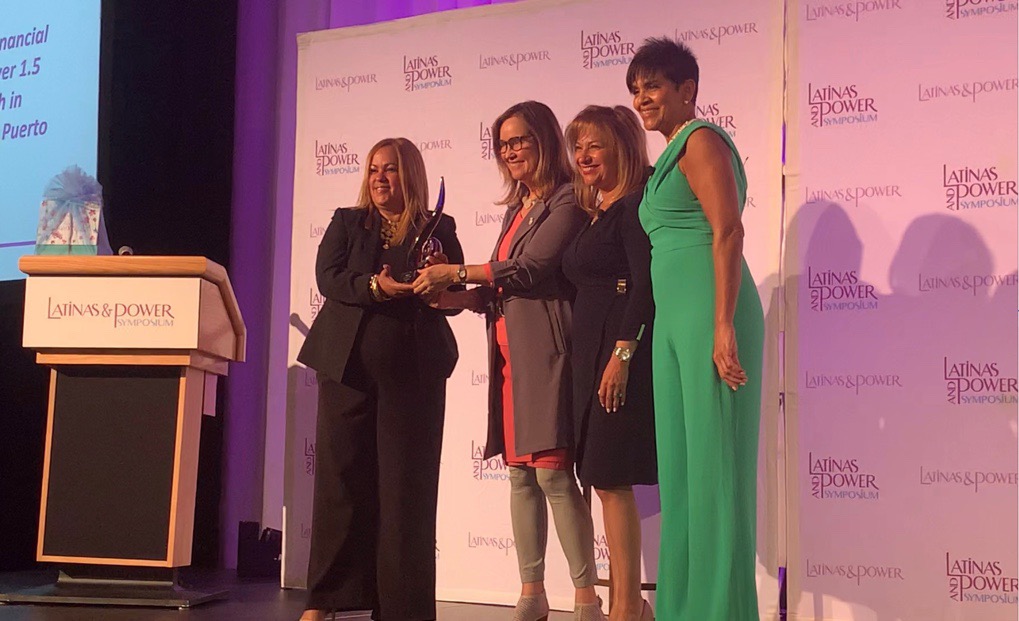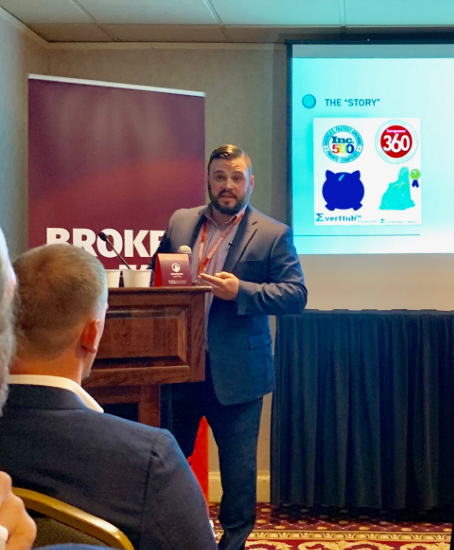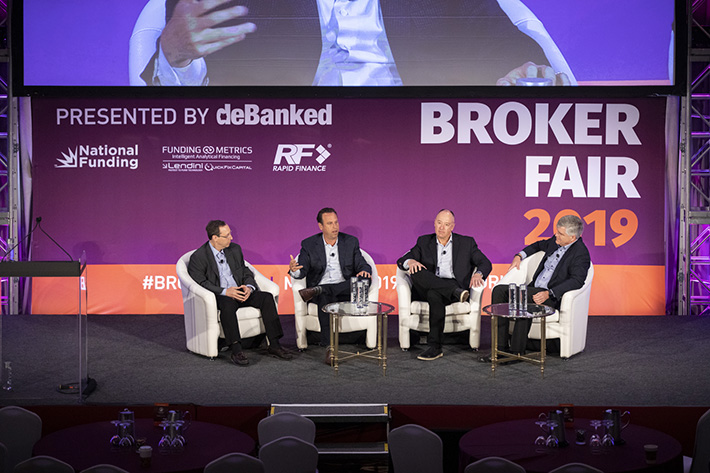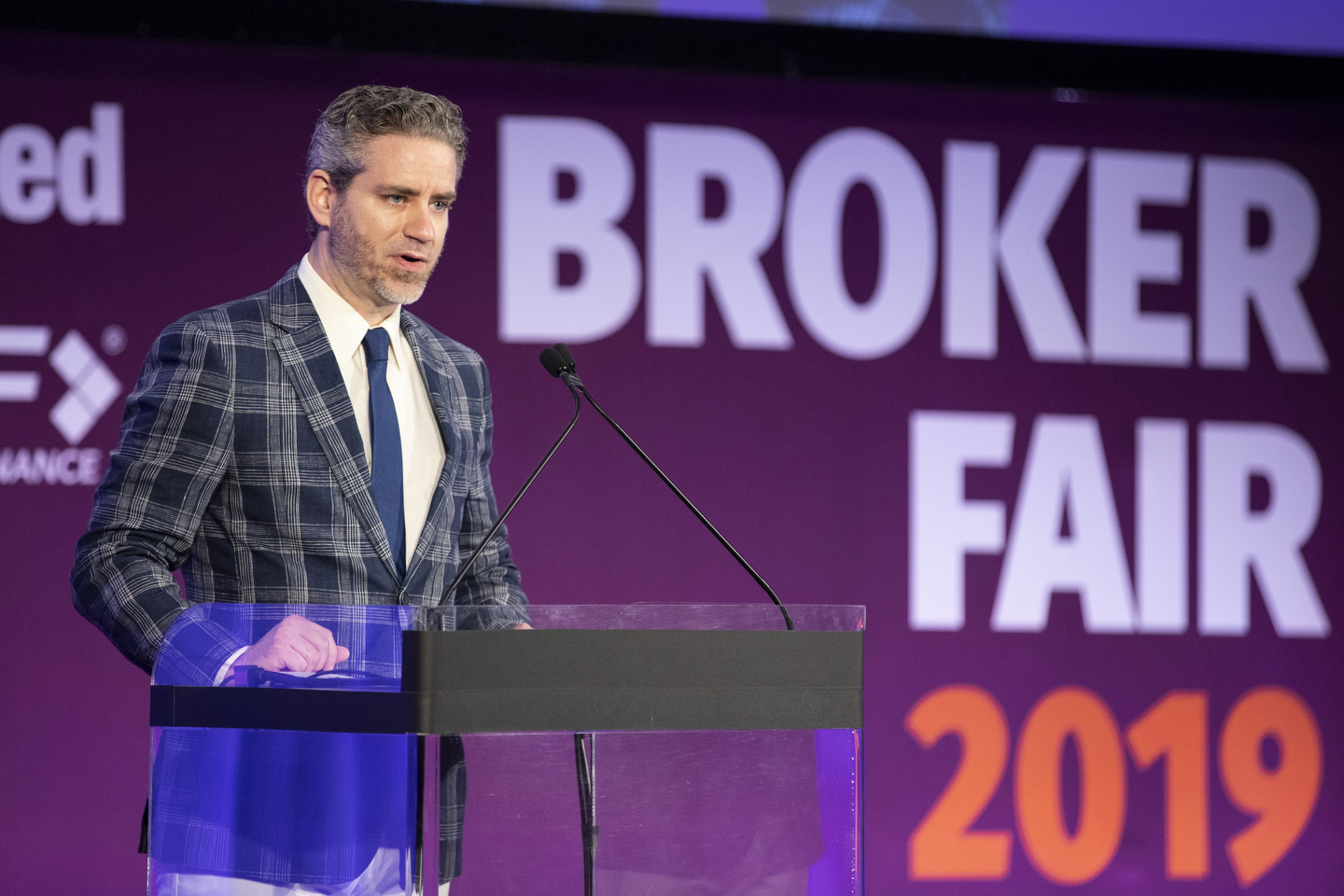Archive for 2019
Small Business Finance Broker Wins Entrepreneur Of The Year
May 17, 2019
Sonia Alvelo, CEO of Newington, CT-based Latin Financial LLC, has been awarded Entrepreneur of The Year by the Latinas & Power Symposium. The event, incubated in Hartford, Connecticut in 2004, is the largest of its kind in New England and has reached upwards of 8,000+ women since its inception.
Alvelo’s company markets and brokers business loans and merchant cash advances throughout the mainland United States and Puerto Rico.
Connecticut Secretary of State Denise Merrill presented the award to Alvelo, who referenced the moment on social media by writing, “I was deeply honored to present the Entrepreneur of the Year Award to Sonia Alvelo at the 16th Annual Latinas & Power symposium today. Her small business is bolstering the Newington economy and her leadership serves as an example for women across the state.”
Alvelo has been an oft-quoted source in deBanked on the state of the small business finance market in Puerto Rico, most recently in the May/June 2018 magazine edition.
“I’m here today because of the merchants and clients from Puerto Rico and the US,” she told deBanked on Thursday, adding that this is just the beginning for what she and her company will accomplish.
I was deeply honored to present the Entrepreneur of the Year Award to Sonia Alvelo at the 16th Annual Latinas & Power symposium today. Her small business is bolstering the Newington economy and her leadership serves as an example for women across the state. pic.twitter.com/POwlvx0XkA
— Denise Merrill (@SOTSMerrill) May 16, 2019
How To Scale Your Broker Shop
May 15, 2019
When it comes to hiring, it’s quality over quantity. That’s what the co-founders of Everlasting Capital Josh Feinberg and Will Murphy told a packed room at deBanked’s Broker Fair last week. They presented a panel called “How to Scale Your Broker Shop,” where they shared tips on how to do just that.
“We wanted to scale so badly and throw bodies in seats,” Murphy said.
And that’s what they did until they realized that they were doing just as much volume when they had fewer people.
CEO of National Funding Dave Gilbert, who spoke on a different panel at Broker Fair, said that he’s a fan of small brokers. He later explained to deBanked that when brokers get too big, they can get stuck with legacy staff. Instead, he said that when they stay lean and spend money on high quality salespeople, they can be much more effective with five or fewer people than with 10.
“It’s not the amount of bodies in the office, it’s the processes you have in place,” Murphy said.
Processes like hiring, training employees and organizing data, which they said should be as simple as possible. Bigger isn’t better and perfect isn’t realistic, they conveyed.
“Don’t worry about trying to create the perfect website or business card,” Feinberg said.
Instead, he said to think about five elements when trying to scale a brokerage shop:
- Focus on cash flow.
- Know that you will fail.
- Don’t quit before the miracle happens.
- Be different than your competition.
- Think bigger.
Meanwhile, Murphy presented concrete actions to take to grow a broker shop:
- Get customers.
- Build relationships.
- Be transparent.
- Find a mentor.
- Ask questions.
- Specialize in two programs (products)
- Brand yourself / your company
Everlasting Capital, which now has 19 people on staff and is based in New Hampshire, facilitates MCA funding and equipment financing.
On Diversification: Acknowledging that MCAs have an uncertain future, Feinberg said it’s important to diversify. He said that three years ago they were doing exclusively MCA deals and now they do 50% MCA and 50% equipment financing.
On social media marketing: “Be consistent. It’s not about the likes. It’s about [good] content and consistency,” Murphy said.
On broker performance: Brokers are given a six month training program at Everlasting Capital. After the six month period, they’re expected to fund four deals a month.
They also said it’s important to make friends with people in the industry.
DLI Receiver Requests Emergency Relief to Liquidate Feeder Fund Entity
May 14, 2019
The Receiver for Direct Lending Investments is racing against the clock to protect and preserve the assets of the Cayman Islands-based vehicle used to receive foreign investments, US court records show. The commencement of a voluntary liquidation of the Cayman-entity is required before the deadline to preserve avoidance claims for over $4 million passes. A liquidation, which the Receiver can’t facilitate without permission from the Court, would also shield the company from any litigation moving forward by imposing an automatic stay.
In a normal situation, the Receiver informed the Court, the liquidation process would be carried out by the directors of the Cayman-based entity, but the only remaining director resigned on May 1st, leaving the company without any leadership whatsoever. Thus, the Receiver appointed in the US is asking for extraordinary relief to assist in the affairs of the Cayman entity and enter into liquidation to best protect its assets.
The Receiver’s concerns over litigation in the Cayman Islands are heightened because he’s reportedly received detailed inquiries from overseas investors wanting to know what’s going on and at this time, he’s not able to confidently answer them.
Given the relief sought and the ex-parte nature of the request, the US court is expected to issue an order on the matter very soon.
Update: The US court approved the Receiver to commence a voluntary liquidation of the Cayman entity
Merchant Relationship Status: It’s Complicated
May 14, 2019
Brokers will often say that building strong relationships with their merchants is critical to their success. John Celifarco, Managing Partner at Horizon Financial Group, a five person ISO in Brooklyn, said that the advantage they have over larger competitors is the relationships they’ve developed with their merchants. Celifarco’s office is even in a streetfront store, where a number of their merchants are actually neighboring stores. Celifarco sees this as a strength.
But Michael Bernier, Vice President of 1 West Finance, a 14-person brokerage based in New York, said that things have changed as competition has increased in the space.
Customers gravitate towards companies that can provide them with not only the best pricing, but also the best user experience, which is why we believe so many new players in the space have achieved scale so quickly.
While customer relationships are important, funders in the space that are improving their speed, efficiency, and pricing are going to win the deals.
“In general, if [end users] find a better price on Amazon, 9 times out of 10 they’re going to buy that product on Amazon, regardless of the sales person on the phone” Bernier said.
Bernier suggests that rate or speed may win the customer but another more legally-binding circumstance may guide the relationship accordingly.

Kapitus CEO Andy Reiser served as moderator.
“Contractually, we own the customer,” said National Funding CEO Dave Gilbert on a panel at Broker Fair. “But we work in conjunction with the broker.”
Fellow panelist and Chairman of Rapid Finance, Jeremy Brown, said that he used to say what Gilbert said, but now says: “We own the loan. [And] we have the right to first renew the customer.”
Brokers seeking a very cozy relationship with their clients should therefore consider what rights and responsibilities are afforded to them under their referral contracts so that there’s no confusion with actions taken by either party with the customer down the road.
“I get close to people very quickly, it’s just who I am,” Kemp, a broker, told deBanked in an interview last year. “And in my opinion it works to my advantage because I have merchants that renew with me multiple times a year. And I know that no matter how many calls they get [from other brokers], they’re going to turn to me. I know that they trust me.”
Likewise, Chad Otar, CEO of Excel Capital in New York, has said that building trust with merchants is very important and is what leads to renewal business. Otar introduced one of his merchants, a marketing company, to his other clients. A few of them ended up working with the marketing company, which was a win for everyone and led to even stronger word of mouth from Otar’s merchants.
“I don’t think anyone owns the customer,” said CEO of BFS Capital Mark Ruddock on the panel alongside Gilbert and Brown. “Customers are a privilege, not a right.”
Another COJ Bill In New York Added To The Pile
May 14, 2019 Three members of the New York State Assembly want to make it illegal for a confession of judgment to be entered in the state against non-New York debtors. The debtor would also be required to be a resident of the county in which the COJ is filed. The authors behind Bill A07500, introduced on May 7th, plainly state that it is a reaction to stories that were published in Bloomberg Businessweek. (Questionable stories at that: See deBanked coverage)
Three members of the New York State Assembly want to make it illegal for a confession of judgment to be entered in the state against non-New York debtors. The debtor would also be required to be a resident of the county in which the COJ is filed. The authors behind Bill A07500, introduced on May 7th, plainly state that it is a reaction to stories that were published in Bloomberg Businessweek. (Questionable stories at that: See deBanked coverage)
“This measure is in response to recent press reports regarding creditors that execute confessions of judgment in New York State even though the associated agreement or debtor have no nexus to the State,” a memo attached to the bill states. Sign Here to Lose Everything, the Businessweek series authored by Zachary R. Mider and Zeke Faux, are cited in the footnotes.
The measure is merely the latest weapon unveiled in a wave of proposed legislation aimed at small business financing in New York this year. Here’s a recap of what’s pending now:
- A07500 – Seeks to ban COJs being entered against non-New York debtors.
- A03636 – Seeks to ban COJs from financial contracts.
- A03637 – Seeks to classify merchant cash advances as loans.
- A03646 – Seeks to establish a task force to investigate New York City marshals and their connection to “predatory lenders” and consider the feasibility of abolishing the city marshal program.
- A03638 – Seeks to apply consumer usury protections to small businesses.
George Popescu Steps Down From Lampix
May 13, 2019George Popescu is stepping down from Lampix, the augmented reality lamp company he founded, according to an announcement. Lampix raised $14.2 million through its sale of PIX tokens in a 2017 Initial Coin Offering (ICO). PIX sold at a price of 12 cents each but the value has since plummeted by more than 95%.
Popescu will be replaced by Salvatore Buccellato, who has been the Chief Revenue Officer since the summer of 2018.
“As outgoing CEO I am really proud to have taken Lampix from an idea/prototype to the successful manufacturing of the Lampix commercial development kits,” Popescu said in a published statement. “I strongly believe that it is good practice for companies to regularly have new CEOs who bring new ideas, new resources and a fresh outside vision to the company. During and after the full transition I will of course remain involved with the company as needed.”
Lampix was profiled in deBanked’s November/December magazine issue as a poster child for the murky world of crypto fundraising. At the time, Popescu was involved in several other ICOs in addition to Lampix. Among them was Restart Energy (which raised $30 million), Opiria, First Blood, AirFox (which later settled charges with the SEC for selling unregistered “securities”), and DropDeck Technologies, whose user funds were lost due to a software bug that also affected numerous other companies. Popescu was also advisory board chairman to Gatecoin, a Hong Kong-based crypto exchange which closed on March 20, 2019 following a 2016 hack.
Broker Fair 2019 Makes Major Splash in the Heart of Manhattan
May 10, 2019
If a tiny ray of light were created from every conversation about small business financing, then the Roosevelt Hotel in midtown Manhattan would have been tantamount to the sun on May 6th. It was the site of deBanked’s 2nd annual Broker Fair and the grand old lobby was abuzz with brokers, funders and vendors from across the industry. And it wasn’t only the lobby. The hallways and ball rooms and bathrooms were filled with people in jackets or dresses with colorful conference badges hanging from their necks. You could not open your eyes without seeing a Broker Fair attendee.
The day kicked off with an address to the crowd by deBanked’s founder and president Sean Murray.
 He spoke to a packed audience in one of the hotel ballrooms that was actually the site of a famous scene in the 1987 movie, “Wall Street,” starring Charlie Sheen and Michael Douglas. It was in this scene where one of the most well-known lines, “Greed is good,” was delivered in a speech by the character Gordon Gekko, a ruthless businessman played by Michael Douglas.
He spoke to a packed audience in one of the hotel ballrooms that was actually the site of a famous scene in the 1987 movie, “Wall Street,” starring Charlie Sheen and Michael Douglas. It was in this scene where one of the most well-known lines, “Greed is good,” was delivered in a speech by the character Gordon Gekko, a ruthless businessman played by Michael Douglas.
In Murray’s speech, he acknowledged the classic financial thriller, but gave it a twist.
“Funding small business is good,” Murray said. “It’s not greed that’s good. Aligned interests are good.”
This very room was a marriage of old and new. The 1924 room with soaring ceilings and crystal chandeliers was packed with mostly young faces in a still relatively new industry. The stage was simple, the chairs sleek, and colored strobe lights circled the ceiling in what created a fresh energy.
The first panel of the day, called “The Great Debate,” was dominated by discussion of technology among the CEOs of some of the largest companies in the small business funding industry: National Funding, Rapid Finance, BFS Capital, and Kapitus.

“Technology is an inevitability and a powerful way for brokers to stay relevant,” BFS CEO Mark Ruddock told deBanked. “The question is, ‘Does that preclude the small [brokers] who don’t have the money to invest in technology?’”
He sees great opportunity for software platforms that can connect an individual broker to lenders, similar to how Shopify connects small mom and pop retailers to a wider consumer audience.
One of the other CEOs on the panel said he was bullish on digitally savvy brokers and all of them seemed to agree that brokers should offer more products.
“Having a broader set of products benefits brokers because they become the go-to person for merchants rather than simply serve a transactional function,” Chairman of RapidAdvance Jeremy Brown told deBanked.
For brokers looking to expand their product offerings, there was a well-attended session called “Commissions with Factoring and Leasing” that was led by factoring and leasing professionals, Phil Dushey and Edward Kaye, respectively.
Meanwhile, the co-founders of the successful brokerage Everlasting Capital, led a session called “How to Scale Your Broker Shop” which included advice on everything from hiring to customer acquisition and social media marketing. One of the founders, Josh Feinberg, had his marketing person follow him around with a video camera throughout the day.
There were also sessions on regulations affecting the industry, plus a session called “Operating with Integrity: Why Ethics Matter.”
“The speakers are very relevant,” said Dexter Bataille, a broker at Pivotal Funding in Florida who attended Broker Fair. “And the panels are really good too.”
“deBanked always finds ways to make the shows more professional,” said Senior Sales Leader at Reliant Funding Nicolas Marr, who flew in from California to attend the conference. “The details really count.”

In another hotel ballroom, Broker Fair attendees meandered around high tables where event sponsors had representatives talking about their products and handing out free t-shirts and pens. As the day wound down and Broker Fair’s “networking happy hour” approached its end at 6 p.m., the figurative sun (created by small business finance conversations) began to set at the Roosevelt Hotel. But a crowd of about 100 lingered at the hotel bar, buzzing away, eager to make just a few more connections.
The small business financing sun will rise again on July 25 at deBank’s next event, deBanked CONNECT in Toronto. Tickets are already available.
Broker Fair 2019 Photos
May 10, 2019If you share any of these on social media, please remember to include #brokerfair
Enjoy!
 |
|





























